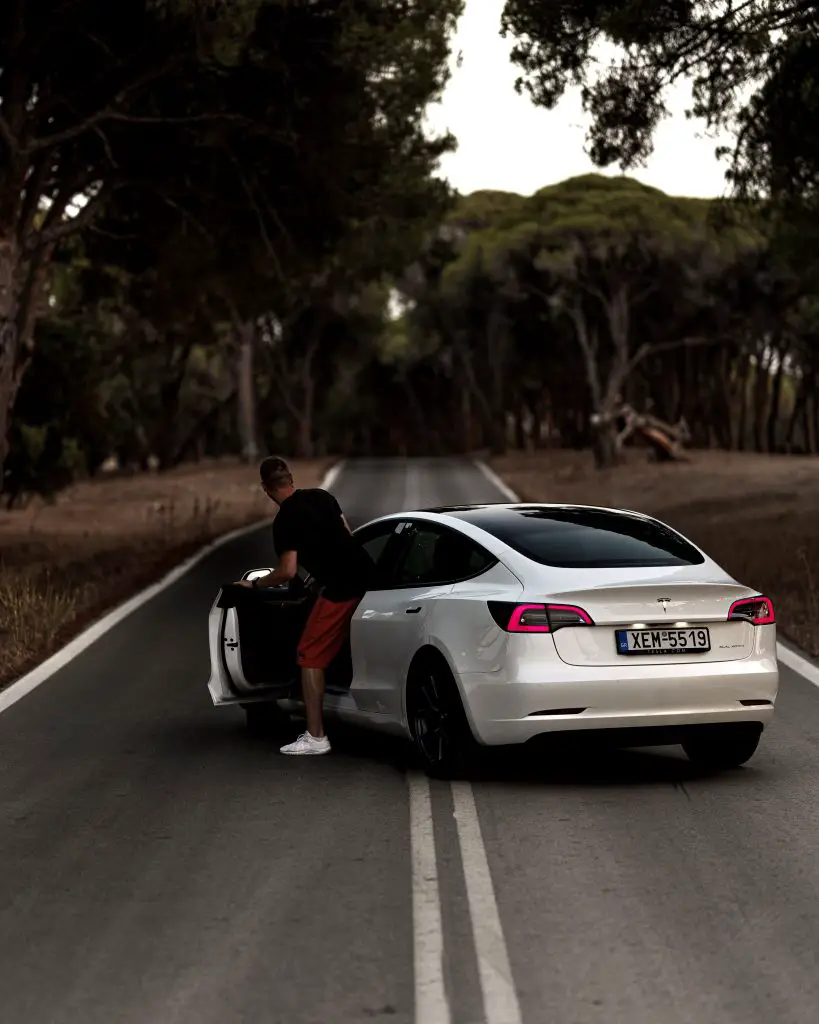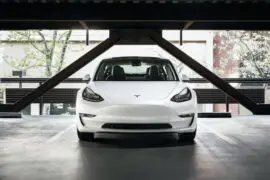Electric vehicles (EVs) have gained popularity recently due to their environmentally friendly and efficient nature. These vehicles are powered by electric motors rather than gasoline engines and rely on rechargeable batteries for power. While EVs offer numerous benefits, they also require specialized equipment to function optimally, including special tires designed specifically for electric driving. In this article, we will explore why EVs need special tires, including the weight of the vehicles, the torque of the electric motors, and the unique demands of regenerative braking. By the end of this article, you will have a better understanding of the importance of specialized tires for EVs and how they contribute to the overall performance of these vehicles.

Contents
Weight
One of the most significant differences between electric vehicles (EVs) and traditional cars is the weight of the vehicles. EVs have large battery packs, which can weigh several hundred kilograms or more. This extra weight puts more stress on the tires, which can cause them to wear out more quickly if they are not designed to handle the weight.
The weight of the EV can also affect the vehicle’s handling and stability. The added weight can increase the likelihood of the car skidding or losing traction, particularly during cornering or emergency maneuvers. To address these issues, special tires are designed to handle the weight of EVs, providing greater stability and grip on the road.
Specialized tires for EVs are typically designed with a stiffer sidewall and a larger contact patch to distribute the vehicle’s weight more evenly. They also have a higher load capacity rating, ensuring they can support the vehicle’s weight without wearing out prematurely. Additionally, the tread pattern on these tires is optimized to provide better traction and grip, even under heavy loads.
Torque
Another significant difference between electric vehicles (EVs) and traditional cars is the amount of torque they produce. EVs have electric motors that provide instant torque, meaning they can accelerate much faster than traditional gasoline engines. While this can be an advantage, it can also put more stress on the tires.
The extra torque generated by the electric motors can cause the tires to spin more easily, particularly in wet or slippery conditions. This can reduce traction and grip on the road, making it more challenging to maintain vehicle control. To address this issue, special tires are designed to provide better traction and grip, even under heavy acceleration.
Specialized tires for EVs typically have a unique tread pattern that is optimized for better traction and grip. The tires may also have a softer compound, which allows them to grip the road more effectively. In addition, some specialized tires have a larger contact patch to improve grip and reduce the risk of slippage.

Regenerative Braking
Many electric vehicles (EVs) use regenerative braking to help recharge their batteries. Regenerative braking is a system that converts some of the kinetic energy generated during braking into electrical energy that can be stored in the battery. While this system can be an efficient way to recharge the battery, it can also put more stress on the tires.
Regenerative braking can cause the wheels to lock up more easily, particularly during sudden stops. This can lead to increased wear and tear on the tires, which can reduce their lifespan. To address this issue, special tires are designed to handle the extra wear and tear caused by regenerative braking.
Specialized EV tires typically have a more durable construction that can better withstand the stress of regenerative braking. They may also have a unique tread pattern that is optimized for better braking performance, allowing them to grip the road more effectively during sudden stops.
In addition, some specialized tires have a harder compound that is better able to resist wear and tear caused by regenerative braking. This can help prolong the tires’ life, reducing the need for frequent replacements.
Range
The range of an electric vehicle (EV) refers to the distance that the vehicle can travel on a single charge. The range of an EV can be affected by a variety of factors, including the weather, driving style, and the type of tires on the vehicle.
Tires can have a significant impact on the range of an EV. Traditional tires can have a higher rolling resistance, which means that more energy is required to keep the vehicle moving. This can reduce the range of the vehicle, making it more challenging to reach your destination on a single charge.
To address this issue, special low-rolling-resistance tires are designed to reduce the amount of energy required to keep the vehicle moving. These tires are typically made with a harder compound and have a unique tread pattern that reduces friction with the road surface. This can help increase the vehicle’s range, allowing drivers to travel further on a single charge.
In addition, some specialized EV tires have a unique construction that helps reduce their weight. This can further improve the efficiency of the vehicle, allowing it to travel further on a single charge.
Other Factors
In addition to weight, torque, regenerative braking, and range, there are other factors that may require special tires for electric vehicles (EVs). These include noise reduction and improved handling.
EVs are known for their quiet operation, which can be a double-edged sword. While the lack of engine noise can be a pleasant experience for drivers and passengers, it can also make it more difficult to hear other sounds on the road, such as approaching emergency vehicles or pedestrians. To address this issue, some specialized tires for EVs are designed to reduce road noise, making it easier to hear other sounds while driving.
In addition, specialized tires for EVs can also be designed to provide improved handling and stability. The extra weight of EVs can make them more difficult to maneuver, particularly at higher speeds. Specialized tires with unique tread patterns and sidewall designs can provide better traction and grip on the road, allowing for improved handling and stability. This can help to improve the overall driving experience and make EVs safer and more enjoyable to drive.

So, Why do EVs need Special tires?
Electric vehicles (EVs) require special tires due to their unique characteristics, such as their weight, torque, regenerative braking, and range. The extra weight of EVs can put more stress on tires, while the extra torque can cause them to spin more easily. Additionally, regenerative braking can put more wear and tear on the tires, while traditional tires can have a higher rolling resistance that can reduce the range of the vehicle.
Special tires designed for EVs can help address these issues and improve performance and efficiency. Low rolling resistance tires can help to increase the range of the vehicle. At the same time, unique tread patterns and sidewall designs can provide better traction and grip on the road, improving handling and stability. Specialized tires can also reduce road noise and provide a more comfortable driving experience.
In conclusion, the importance of special tires for EVs cannot be overstated. By using tires designed for their unique needs, EV drivers can enjoy improved performance, efficiency, and safety. As the popularity of EVs continues to grow, it is essential that tire manufacturers continue to innovate and develop new products to meet the evolving needs of this rapidly expanding market.
Ever wondered whether you can reclaim VAT on Electric vehicles? Read it here.





